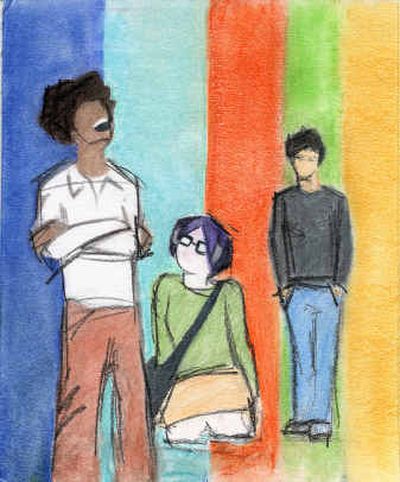Fighting biases

Prejudice is defined as an adverse judgment or opinion formed beforehand or without knowledge or examination of the facts.
Are you prejudiced? Do you make assumptions about a person’s ethnic ties based on looks? Are you quick to assign someone a stance in life based on the car they drive? Do you automatically denounce a religious or political affiliation simply because it differs from yours? Or are your prejudices more subtle, such as using slang terms deemed politically incorrect by today’s standards?
Nearly every previous generation has faced and tried to overcome a significant prejudice in an attempt to assure that all Americans are guaranteed various freedoms. Slavery was abolished in 1865, women were allowed the right to vote in the 1920s, and schools were desegregated in the 1950s and ‘60s.
Does that mean that we, as a nation, are free from prejudice?
A small picture in a local newspaper recently caught my attention. It showed a man dressed in a turban, gazing out at the scene of the World Trade Center disaster. The caption read, “Tears at Ground Zero weren’t reserved for Americans. This photo was taken at the tragedy site where hundreds of people gathered to pray and express their grief.”
While that statement is undoubtedly true — many people from other nations also lost their lives — why did I find myself assuming a man wearing a turban was from another country?
People from all over the world have made the United States their home. But despite our diversity, issues of race often dominate the news media.
In February, The Spokesman-Review reported that 27 Latino students at Brewster High School were called to a meeting in November to discuss their low state test scores, as well as their lack of respect for each other. School officials denied they acted out of racial bias. In April, 50 civil rights activists marched to protest the treatment of the Latino students.
Also in April, a Spokane County Sheriff news release said that four teenage boys were arrested following a cross-burning incident in Elk. The victim, an American Indian, has two adopted black sons. The teens told police officers that they were bored and had picked the victim’s family because they were the only blacks living in Elk. Two suspects were white and two were Hispanic.
In May, accusations of prisoner abuse by Americans dominated the news. Iraqi prisoners were pictured being humiliated in U.S.-run prisons. A Red Cross report released May 10 says the abuse was widespread and routine.
Evidently, my generation faces many challenges in the fight against prejudice. And many teenagers say they think the issues need to be addressed on a personal level, where we feel comfortable and have some control, before we can conquer the issue worldwide.
Litney Leifer, 17, of St. John-Endicott High School, said she believes people are most prejudiced about status in society or school.
“Those of us who know where people’s worth really lies, and that it’s not in possessions, need to encourage one another for the positive things and hard work that we bring forth,” Leifer said. “Focusing on the strong points about people and learning to love the differences in one another is a hard lesson to learn but the only solution.”
Clarissa Harston, 16, of Rosalia High School, said religious tolerance would go a long way to improving relations. Religion has propelled people to war, launched settlements in new areas and torn families apart over the course of thousands of years.
“I think that people should actually learn about other religions before they jump to conclusions based on what they hear in the media,” Harston said. “Everyone needs the chance to believe what they want without being criticized for it.”
Sara Moxley, 16, of Colfax, echoed that sentiment.
“Why can’t we just accept others’ beliefs?” she said.